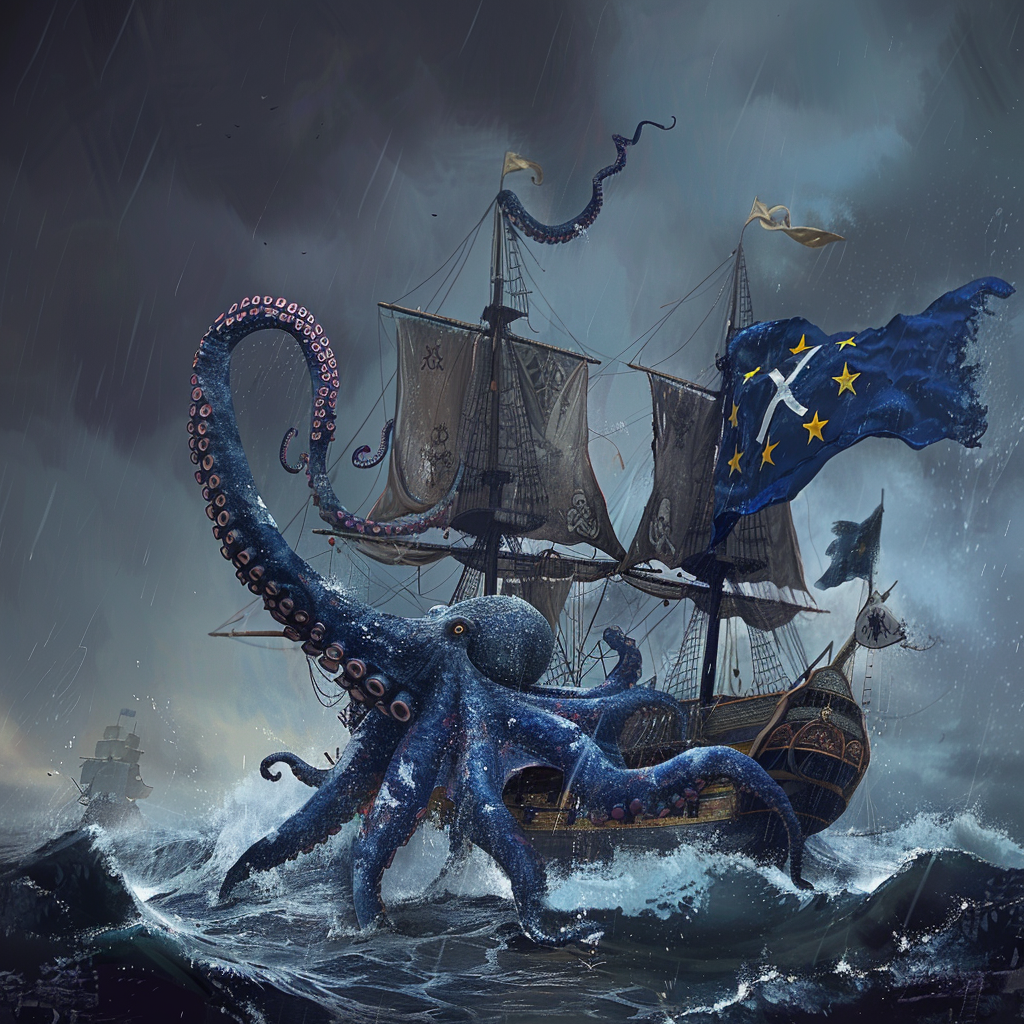Free speech platforms like 'X' will never pass the EU's DSA test
Elon Musk wants X to be the premiere free speech platform. But this trajectory is completely at odds with the aims of the EU's regulatory playbook. And this battle is far from over.

Today, the European Commission released its initial findings in the investigation into X, formerly known as Twitter, and whether it has violated the Digital Services Act since begin designated a Very Large Online Platform (VLOP) on April 25, 2023.
That designation came just six months after the platform was purchased and taken private by tech mogul Elon Musk, after X had declared its over 45 million monthly EU users.
The EU first launched an investigation in X's digital practices in December 2023, before the ink had even dried on the company takeover by Musk.
EU Commissioner for the Internal Market Thierry Breton, who will often be invoked here on EU Tech Loop, said the inquiry was necessary to understand how X is "countering the dissemination and amplification of illegal content and disinformation in the EU, transparency of the platforms and design of the user interface."
Now, in the heat of a European summer, we have the preliminary findings.
"How grave your errors, Mr. Musk!"
As expected, the Commission finds that X has breached the DSA.
The complaints are that X has engaged in the use of "dark patterns," inadequate "advertising transparency," and failed to offer appropriate "data access for researchers".
The first point offered by the Commission is that the verified blue check has been opened up to anyone willing to upload their ID and pay a monthly or annual fee, as opposed to the ancien régime's practice of granting verification badges only to those deemed "noteworthy". This was mainly offered to journalists, political figures, celebrities, and those at danger of being impersonated.
The commission finds that the willy-nilly acquisition of blue checks by the masses "negatively affects users' ability to make free and informed decisions about the authenticity of the accounts".
The second point is that X does not offer a searchable database for transparency on who is putting out ads on the platform. The commission believes that the "design does not allow for the required supervision and research into emerging risks brought about by the distribution of advertising online."
Last, the commission charges that by limiting the ability for researchers to scrape X user data, or by charging higher fees for accessing the API, X is failing in providing access to independent researchers who would to access X data.
Of course, there are many arguments for why these particular grievances would be in contravention of the DSA and other European regulations on platforms such as X.
But that stems from the philosophical basis inherent in the DSA and its component Digital Markets Act, that platforms that want to reach Europeans will need to offer cookie-cutter restrictions to restrain freedom of expression of posters will enabling more moderation of content.
With X's new Musk-inspired philosophy of free speech and expression, there is no way that it will ever pass the test furthered by the DSA. It is incongruent.
Large moderation teams and compliance experts will be a necessary part of any project or company that wants to offer social media tech in the EU.
Will that mean that X will have to significantly degrade its European offering or risk fines and other punitive actions? Likely.
But it should also reinvigorate the debate about the purpose of the DSA and similar commission regulations. Is it to provide a free and fair digital single market for European citizens and businesses that want to operate here? Or to erect protectionist digital borders that aim to steer content in the mold deemed most appropriate by regulators in Brussels?
That conflict is not new, but it is becoming ever more important.
The regulatory cannons have always been dialed on X
While the statement put out by Breton and Commission VP Margrethe Vestager laid out the more formal areas it would be targeting according the DSA, it was clear even before Musk bought X/Twitter that the knives would be out.
Breton was already warning Musk of the regulatory implications of buying X in April 2022, just a few weeks after he launched the eye-watering $44 billion bid.
Be it cars or social media, any company operating in Europe needs to comply with our rules – regardless of their shareholding.
— Thierry Breton (@ThierryBreton) April 26, 2022
Mr Musk knows this well.
He is familiar with European rules on automotive, and will quickly adapt to the Digital Services Act.#DSA
While much has been made of Breton's often bombastic and hyperbolic persona (I described him as a "bespeckled white-haired Frenchman" with "horn-rimmed round glasses, wavy hair, and tailored suit hawking orders at tech execs"), the fact remains that despite his agenda or personal grievances, the EU regulatory cannons are now dialed in on the X platform.
Since Musk bought Twitter/X, he's remade the site into an image reflected by his own self-professed principles, formalizing a broad policy of freedom of expression, privacy, and transparency that parts ways with the previous governance of the tech firm.
Rather than acquiesce to every demand by governments and outside parties to takedown content or censor accounts, Musk claims, X will be a premiere free speech platform. But this trajectory is completely at odds with the aims of the EU's regulatory playbook. And this battle is far from over.
Moderation or else
As we learned from the "Twitter Files," internal emails and memos leaked by Musk to journalists Matt Taibbi and Michael Shellenberger, the pressure and demands put on moderation teams at Twitter during its previous ownership were daunting and quite explicit.
Governments around the world sought to censor or downgrade the reach of activists, journalists, and oppositional figures. Law enforcement agencies put in multiple requests to flag and ban accounts linked to intelligence efforts, criminal activities, or otherwise seedy operations and people.
While the DSA is not explicitly intended as a regulation to restrain speech and business online, its very nature and applicability will irresistibly lead to this end.
For Breton, Vestager, and many of the commissioners in Brussels, the message on digital social media services is clear.
If you want Europeans using your website:
This will forever be at odds with the swashbuckling free expression approach promised by Elon.
But before he is an activist and purist for free speech, we must remember that Elon Musk is also a businessman. He understands compliance, and in the case of his investments and reliance on China, knows that he will have to bend the knee at some point.
For the sake of users now over on the fun playground of X, and for users in the European Union who want reasonable regulation of digital services, we hope this proves to be in our favor. But only time will tell.
What do you think? Let us know down in the comments.

